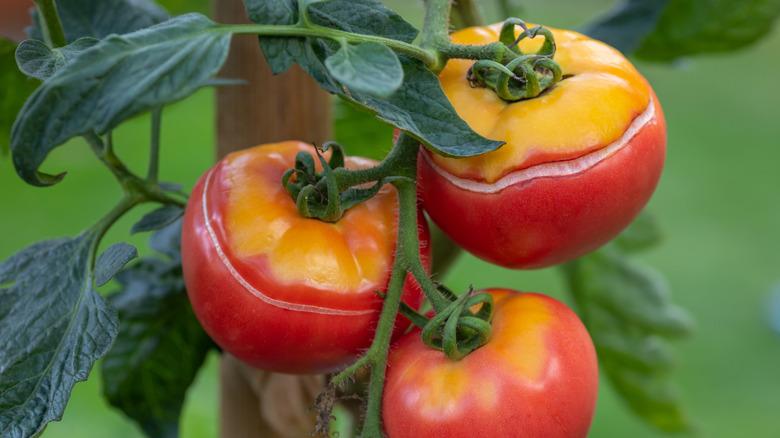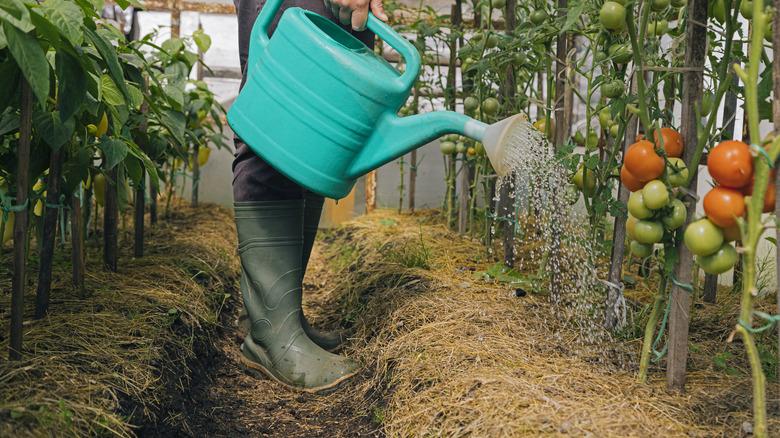Say Goodbye To Splitting Tomatoes With The Easiest Solution Of All
Successfully grown tomatoes (Solanum lycopersicum) are a gardener's pride and joy, so finding a tomato cracked open can be heartbreaking. If the cracked tomato is not infected or invaded by bugs, it's likely still edible. If it is diseased, you can at least collect the seeds to grow tomatoes from seed the following year. Still, it seems so random. Most of your tomatoes might be beautifully whole and ripe, while one or two are cracked and unsightly. 'Tis a pity, given that the way to prevent cracking is simply to water them regularly.
Tomatoes are more likely to crack when they are fully grown and beginning to ripen. This makes sense. There's more surface area in a larger tomato, and the skin has been stretched tighter as the tomato grows. Alternating extremes of dryness and moisture can create small cracks in the skin, which only grow larger with every alternation in moisture content. But a regular and consistent watering schedule can maintain healthy tomato skin and prevent it from cracking. Just listen to the advice of all those skin moisturizer ads: Regular hydration maintains healthy skin. It's no different with tomatoes.
How to prevent tomatoes from cracking
As temperatures rise and tomatoes grow in size, you can prevent cracking by increasing your watering schedule and following it diligently. You can install a drip irrigation system and put it on a timer to make sure your tomato plants get the water that they need. On the hottest days, use overhead watering to directly moisten and cool the tomatoes. Tomatoes, on average, need about an inch of water a week. Simply poke a finger into the soil at that same depth. If it's still moist, there's no need to water. Otherwise, water generously, especially in the days following a downpour, when you want to make sure the soil doesn't dry out. Downpours can leach calcium from the soil, and a calcium deficiency can also lead to cracking. You can raise the calcium level with a dose of tomato-specific fertilizer.
If you've overlooked your watering schedule and start to see signs of cracking, there's no harm done in harvesting tomatoes and letting them ripen indoors when they have grown to their full potential. Tomatoes stop growing and have reached their "vine-ripened" stage when they first begin changing color from the bottom up, with a little pink becoming noticeable. Tomatoes don't need sunshine to ripen, and as temperatures rise in late summer, tomatoes are more vulnerable to cracking. When temps reach 85 degrees or more, tomatoes stop producing the chemicals lycopene and carotene which turn the fruit red. Instead of risking cracking, pick early and store your tomatoes in a bag, where the ethylene they produce will ripen them.

